How Lenders Can Avoid Losing Their Collateral by Paying Off the Borrower’s Property Tax Obligations
Jimerson Firm
MAY 24, 2021
How Do Property Taxes Result in Loss of Collateral? If the borrower is delinquent in paying its property taxes, a tax certificate may be sold for the past-due taxes, which could lead to a tax deed sale of the collateral. How to Get a Deficiency Judgment After a Foreclosure Sale. 197.432.


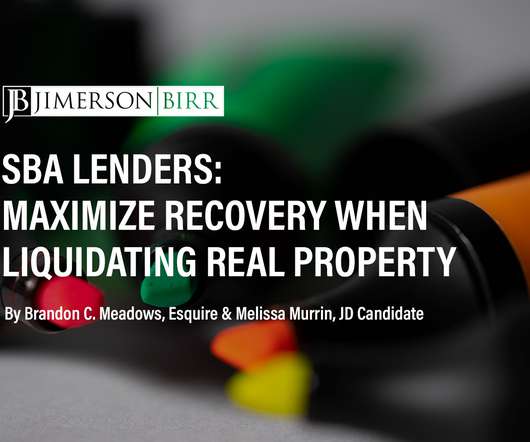
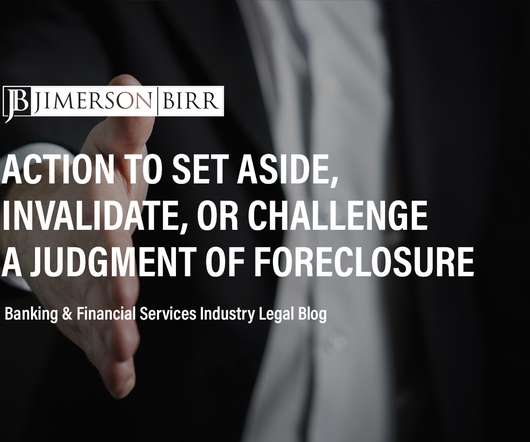
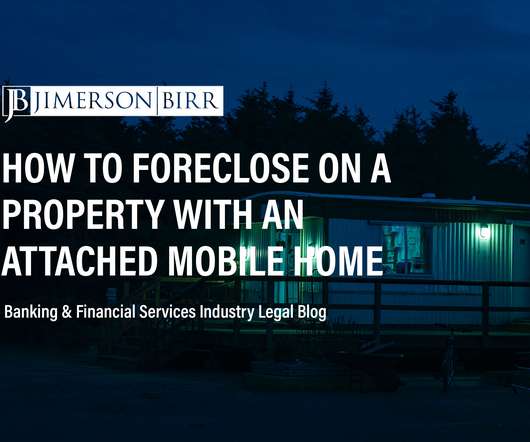
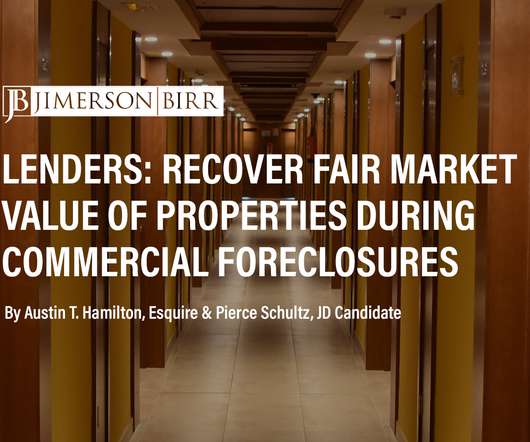
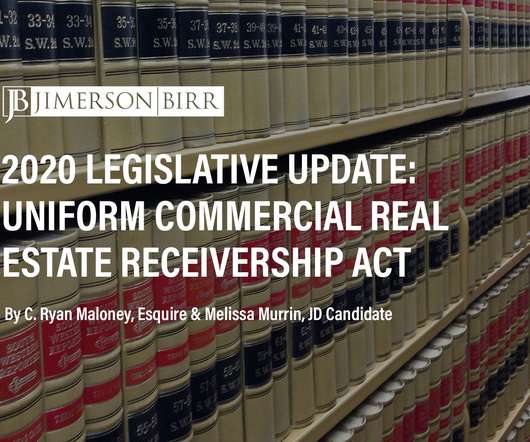








Let's personalize your content